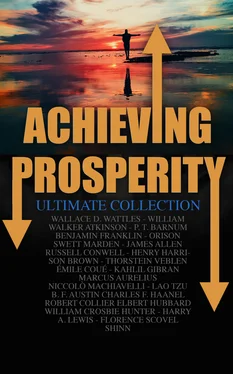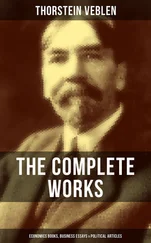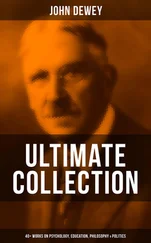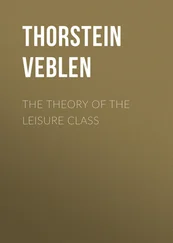“Old Grizzly Adams” was quite candid when, in his last hours, he confessed to the clergyman that he had “told some pretty large stories about his bears.” In fact, these “large stories” were Adam’s “besetting sin.” To hear him talk, one would suppose that he had seen and handled everything ever read or heard of. In fact, according to his story, California contained specimens of all things, animate and inanimate, to be found in any part of the globe. He talked glibly about California lions, California tigers, California leopards, California hyenas, California camels, and California hippopotami. He furthermore declared he had, on one occasion, seen a California elephant, “at a great distance,” but it was “very shy,” and he would not permit himself to doubt that California giraffes existed somewhere in the neighborhood of the “tall trees.”
I was anxious to get a chance of exposing to Adams his weak point, and of showing him the absurdity of telling such ridiculous stories. A fit occasion soon presented itself. One day, while engaged in my office at the Museum, a man with marked Teutonic features and accent approached the door and asked if I would like to buy a pair of living golden pigeons.
“Yes,” I replied, “I would like a flock of ‘golden pigeons,’ if I could buy them for their weight in silver ; for there are no ‘ golden ‘ pigeons in existence, unless they are made from the pure metal.”
“You shall see some golden pigeons alive,” he replied, at the same time entering my office and closing the door after him. He then removed the lid from a small basket which he carried in his hand, and sure enough there were snugly ensconced a pair of beautiful living ruff-necked pigeons, as yellow as saffron and as bright as a double eagle fresh from the mint.
I confess I was somewhat staggered at this sight, and quickly asked the man where those birds came from.
A dull, lazy smile crawled over the sober face of my German visitor, as he replied in a slow, guttural tone of voice:
“What you think yourself?”
Catching his meaning, I quickly answered:
“I think it is a humbug?”
“Of course, I know you will say so; because you ‘forstha’ such things better as any man living, so I shall not try to humbug you. I have color them myself.”
On further inquiry, I learned that this German was a chemist, and that he possessed the art of coloring birds any hue desired, and yet retain a natural gloss on the feathers, which gave every shade the appearance of reality.
“I can paint a green pigeon or a blue pigeon, a gray pigeon or a black pigeon, a brown pigeon or a pigeon half blue and half green,” said the German; “and if you prefer it, I can paint them pink or purple, or give you a little of each color, and make you a rainbow pigeon.”
The “rainbow pigeon” did not strike me as particularly desirable; but, thinking here was a good chance to catch “Grizzly Adams,” I bought the pair of golden pigeons for ten dollars, and sent them up to the “Happy Family,” marked “Golden Pigeons from California.” Mr. Taylor the great pacificator, who has charge of the Happy Family, soon came down in a state of perspiration.
“Really, Mr. Barnum,” said he, “I could not think of putting those elegant golden pigeons into the Happy Family—they are too valuable a bird—they might get injured—they are by far the most beautiful pigeons I ever saw; and as they are so rare, I would not jeopardize their lives for anything.”
“Well,” I replied, “you may put them in a separate cage, properly labeled.”
Monsieur Guillaudeu, the naturalist and taxidermist of the Museum, has been attached to that establishment since the year it was founded, 1810. He is a Frenchman, and has read everything upon Natural History that was ever published in his own or in the English language. He is now seventy-five years old, but is lively as a cricket, and takes as much interest in Natural History as he ever did. When he saw the “golden pigeons from California,” he was considerably astonished! He examined them with great delight for half an hour, expatiating upon their beautiful color, and the near resemblance which every feature bore to the American ruff-neck pigeon. He soon came to my office and said:
“Mr. B., these golden pigeons are superb, but they cannot be from California. Audubon mentions no such bird in his work upon American Ornithology.”
I told him he had better take Audubon home with him that night, and perhaps by studying him attentively he would see occasion to change his mind.
The next day, the old naturalist called at my office and remarked:
“Mr. B., those pigeons are a more rare bird than you imagine. They are not mentioned by Linnæus, Cuvier, Goldsmith, or any other writer on Natural History, so far as I have been able to discover. I expect they must have come from some unexplored portion of Australia.”
“Never mind,” I replied, “we may get more light on the subject, perhaps, before long. We will continue to label them ‘California Pigeons’ until we can fix their nativity elsewhere.”
The next, morning, “Old Grizzly Adams,” whose exhibition of bears was then open in Fourteenth street, happened to be passing through the Museum, when his eyes fell on the “Golden California Pigeons.” He looked a moment and doubtless admired. He soon after came to my office.
“Mr. B,” said he, “you must let me have those California pigeons.”
“I can’t spare them,” I replied.
“But you must spare them. All the birds and animals from California ought to be together. You own half of my California menagerie, and you must lend me those pigeons.”
“Mr. Adams, they are too rare and valuable a bird to be hawked about in that manner; besides, I expect they will attract considerable attention here.”
“Oh, don’t be a fool,” replied Adams. “Rare bird, indeed! Why, they are just as common in California as any other pigeon! I could have brought a hundred of them from San Francisco, if I had thought of it.”
“But why did you not think of it?” I asked, with a suppressed smile.
“Because they are so common there,” said Adams. “I did not think they would be any curiosity here. I have eaten them in pigeon-pies hundreds of times, and shot them by the thousand!”
I was ready to burst with laughter to see how readily Adams swallowed the bait, but maintaining the most rigid gravity, I replied:
“Oh well, Mr. Adams, if they are really so common in California, you had probably better take them, and you may write over and have half a dozen pairs sent to me for the Museum.”
“All right,” said Adams; “I will send over to a friend in San Francisco, and you shall have them here in a couple of months.”
I told Adams that, for certain reasons, I would prefer to change the label so as to have it read: “Golden Pigeons from Australia.”
“Well, call them what you like,” replied Adams; “I suppose they are probably about as plenty in Australia as they are in California.”
I fancied I could discover a sly smile lurking in the eye of the old bear-hunter as he made this reply.
The pigeons were labeled as I suggested, and this is how it happened that the Bridgeport non-believing lady, mentioned in the next chapter, was so much attracted as to solicit some of their eggs in order to perpetuate the species in old Connecticut.
Six or eight weeks after this incident, I was in the California Menagerie, and noticed that the “Golden Pigeons” had assumed a frightfully mottled appearance. Their feathers had grown out, and they were half white. Adams had been so busy with his bears that he had not noticed the change. I called him up to the pigeon cage, and remarked:
Читать дальше












